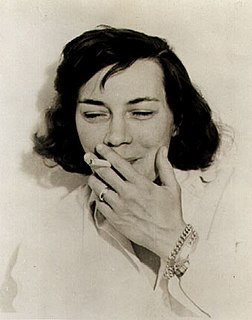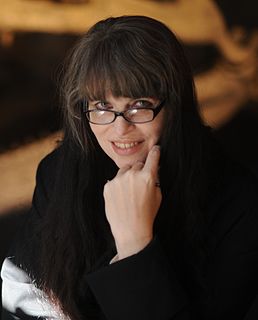A Quote by Nancy Kress
Your opening should give the reader a person to focus on. In a short story, this person should turn up almost immediately; he should be integral to the story's main action; he should be an individual, not just a type. In a novel, the main character may take longer to appear: Anna Karenina doesn't show up in her own novel until chapter eighteen.
Related Quotes
Character drives the story, and the story drives the book. I don't think about where the action should go, or how much there should be, until it's required by the characters. When I find myself adding conflict just because I'm afraid that the reader might get bored, I know I've taken a wrong turn somewhere.
A detective novel should contain no long descriptive passages, no literary dallying with side-issues, no subtly worked-out character analyses, no 'atmospheric' preoccupations. Such matters have no vital place in a record of crime and deduction. They hold up the action and introduce issues irrelevant to the main purpose, which is to state a problem, analyze it, and bring it to a successful conclusion. To be sure, there must be a sufficient descriptiveness and character delineation to give the novel verisimilitude.
I don't think a novel's main donation, main gift, is the document. The document is there, but a novel goes beyond documentation. It goes into opening a new vista, opening a new perspective, showing familiar things in an unfamiliar way, and making the reader reconsider the documentary facts which he or she may have known before.
Before I begin a novel I have a strong sense of at least one central character and how the story begins, and a more vague sense of where things may wind up, but at some point, if the novel is any good at all, the story and characters take on lives of their own and take over the book, and the writer has to be open to that.
What is a novel? I say: an invented story. At the same time a story which, though invented has the power to ring true. True to what? True to life as the reader knows life to be or, it may be, feels life to be. And I mean the adult, the grown-up reader. Such a reader has outgrown fairy tales, and we do not want the fantastic and the impossible. So I say to you that a novel must stand up to the adult tests of reality.
There is a document in every novel in the world. Even in the most fantastic novel, even in science fiction, there is a documentary side. But, this side is not the crux of the matter. I don't think a novel's main donation, main gift, is the document. The document is there, but a novel goes beyond documentation. It goes into opening a new vista, opening a new perspective, showing familiar things in an unfamiliar way.
The ideal set-up would be the story man, the director, and the layout man, as well as musician, operating as a sort of story unit. They all should be keenly interested in the picture. No one in person should donate to an extent where he would keep the others from entering into the production and freely expressing themselves.



































